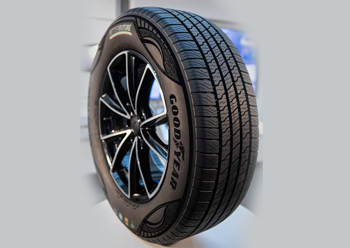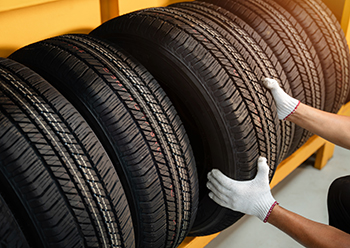
Full programme for RubberCon 2023 being held from May 9 to 11 at the University of Edinburgh in the UK has been announced. The conference focuses on the use of elastomers and elastomeric materials for a wide range of products and applications.
The RubberCon 2023 committee has accepted 80 oral papers, including the plenary sessions, committee-invited papers and sponsors’ papers, organiser the IOM3 has announced.
A further 64 poster papers were also accepted for RubberCon, according to a statement from the institute.
"RubberCon’s return to the UK in 2023 is very welcome. It is the first global rubber conference to be in the UK since the hugely successful International Rubber conference in 2019,” said Prof James Busfield, RubberCon 2023 chair.
"There are huge challenges in the rubber industry related to improving our environmental credentials, reducing our dependence on unsustainable materials and reducing the pollution we generate."
On top of this, noted Busfield, elastomers need to work in new applications related to electrification of transportation, the expansion of the hydrogen economy, energy harvesting and energy storage.
Some applications, such as materials used in geothermal drilling or seals in the nuclear industry are also creating a demand for elastomers materials that can work in increasingly hostile environments, he added.
"All of which means that we have a wonderful opportunity to showcase the very best innovations that are being made both in academia and by industry to address all these needs," concluded Busfield.
The RubberCon 2023 programme focuses on the use of elastomers and elastomeric materials for a wide range of products and applications, these include:
Elastomer product innovations including the following sectors: agriculture; medical; sport, leisure, and consumer products; energy generation including nuclear; latex products; electric vehicles; NVH challenges; extreme temperature, pressure or environment applications and other novel emerging applications.
Material developments including: polymers with a focus on novel or speciality elastomers, elastomers for extreme conditions, thermoplastic elastomers, functionalised elastomers, self-healing elastomers and elastomer foams and gels; fillers and additives including nanoscale or functionalised fillers; novel and innovative materials.
Material processing including: smart manufacturing (industry 4.0); process innovation; additive manufacture; cure chemistry and kinetics; rubber mixing.
Sustainability including: bio-derived materials; materials recycling; reduced carbon emissions during manufacture and in service.
Characterisation and testing of materials and products including: thermal and viscoelastic behaviour; failure mechanisms including ageing, fatigue and chemical degradation; lifetime prediction.
Modelling including: constitutive modelling of the materials and product design; tribology, friction and wear; process modelling and optimisation; systems design.
Smart materials including: strain or environment sensing; actuation; electro active polymers; soft robotics; intelligent traceability in product development.


